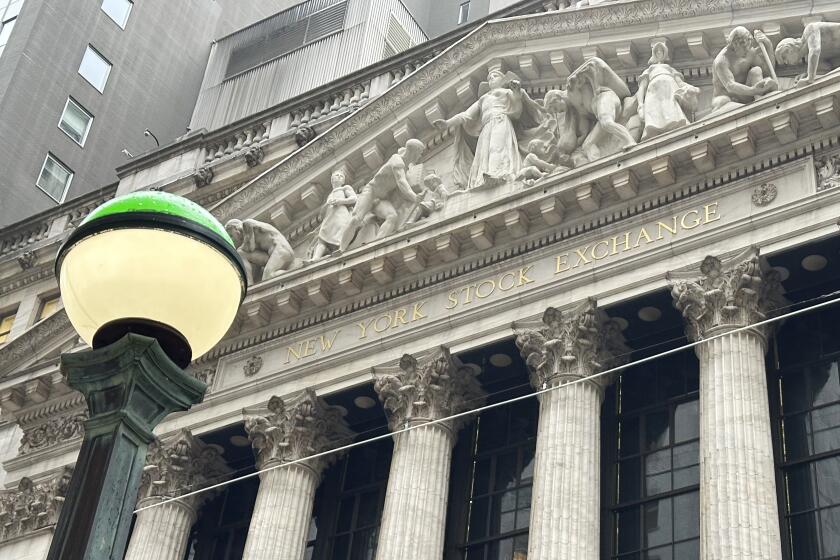Bernanke urges lawmakers not to slash Fed’s regulatory authority
Federal Reserve Chairman Ben S. Bernanke told lawmakers Wednesday that regulatory failures by the central bank helped trigger the financial crisis, but that doesn’t mean they should strip the agency of much or all of its oversight of individual banks.
The Fed has been under intense fire for not heading off the meltdown of the housing and financial markets. The criticism has been particularly harsh in Congress, where lawmakers are considering a sweeping overhaul of financial regulations that would curtail the central bank’s role in bank supervision.
Senate Banking Chairman Christopher J. Dodd (D-Conn.), who has called the Fed’s regulation of banks an “abysmal failure,” on Monday proposed taking away its oversight of all but about three dozen of the nation’s largest banks.
Bernanke fought back Wednesday in his first public comments about Dodd’s proposal.
The Fed is working to improve its oversight of the 6,000 small and large banks that it regulates, Bernanke said. Stripping the Fed of a major part of that regulatory role, he said, would deprive it of important information about the state of the financial system and the economy that is necessary to set monetary policy.
“We are quite concerned by proposals to make the Fed a regulator only of the biggest banks,” Bernanke told the House Financial Services Committee. “It makes us essentially the too-big-to-fail regulator. We don’t want that responsibility. We want to have a connection to Main Street as well as to Wall Street.”
Former Federal Reserve Chairman Paul Volcker, now an economic advisor to President Obama, backed Bernanke. He told the committee it would be a “really grievous mistake” to remove the Fed from its role in overall bank regulation.
And Jeffrey Gerhart, president of the Bank of Newman Grove, a community bank in Nebraska, warned the committee that eliminating the Fed’s supervision of small banks “could lead to a bias in favor of the largest financial institutions.”
But the Fed is not popular on Capitol Hill right now.
It has been criticized for waiting until 2008 -- 14 years after Congress granted it authority -- to enact rules on the risky subprime mortgages that wrecked the housing market.
And many lawmakers are angry about the Fed’s bailouts of investment banker Bear Stearns & Co. and giant insurer American International Group Inc., as well as the trillions of dollars the central bank has pumped into the economy to ease the credit crisis.
“Where was the Fed? How did this happen under your watch?” said Rep. David Scott (D-Ga.), pressing Bernanke on the reasons that 27 banks have failed in Scott’s state over the last three years.
House Republicans have proposed taking away all of the Fed’s oversight of banks as part of their financial regulatory overhaul so it can focus on monetary policy.
“It seems that when the Fed is responsible for monetary policy and bank supervision, its performance in both suffers,” Rep. Spencer Bachus (R-Ala.) said.
Under the House-passed financial regulatory overhaul and Dodd’s proposal, the Fed would gain new authority to regulate huge financial institutions that are not banks.
The Fed now oversees about 5,000 bank holding companies and about 850 state-chartered banks that are part of the Federal Reserve System. There are about 8,000 banks in the U.S. overall.
The House bill retains that oversight. But Dodd has proposed stripping the Fed of regulatory authority over all but the largest bank holding companies -- those with $50 billion or more in assets. At the end of last year, about 35 bank holding companies fit that category, including Bank of America Corp. with $2.2 trillion in assets and Zions Bancorp with $51 billion in assets.
Under Dodd’s plan, regulation of the other banks under Fed oversight would be shifted to the Federal Deposit Insurance Corp. and the Office of the Comptroller of the Currency. The move would be a major blow to the Fed, particularly many of its 12 regional banks, which would lose most of their regulatory role.
Bernanke said the central bank had been “doing a lot of soul searching” about its regulatory failings since the crisis. It has made “substantial changes” to how it supervises banks to improve its ability to identify potential risks in the financial system and the broader economy, he said.
“We are working to do a better job,” Bernanke said.
Those changes, along with the Fed’s large stable of economists and other staff, make it uniquely qualified to play a major role in banking oversight, Bernanke said.
And supervising small banks around the country as well as large ones centered on Wall Street is vital to the Fed’s main role of maximizing employment and curbing inflation, he said.
“We need to see what’s happening in the entire financial system,” Bernanke said.
jim.puzzanghera
@latimes.com







